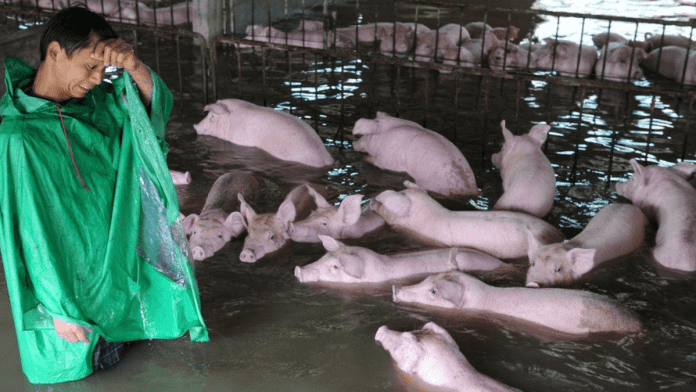New in Brief:
– Severe floods in Brazil’s Rio Grande do Sul devastate hog and poultry farmers, impacting global meat supply chains.
– Significant losses reported include 12,600 hogs and 279,000 poultry, highlighting vulnerability to natural disasters.
The recent devastating floods in Brazil’s Rio Grande do Sul state have sent shockwaves through the global agricultural community, particularly affecting the livestock industry. Such events serve as a poignant reminder of the vulnerabilities faced by farmers worldwide.
The loss of over 12,600 hogs and hundreds of thousands of poultry in Brazil highlights the fragility of livestock farming in the face of natural disasters. These losses not only disrupt local economies but also have ripple effects on global meat supplies. For Nigeria, a country with a growing agricultural sector, understanding these impacts is crucial as it navigates its own agricultural challenges.
In countries, where agriculture plays a significant role in the economy and livelihoods, lessons can be drawn from Brazil’s experience. Farmers should prioritise disaster preparedness and resilient farming practices. This includes ensuring adequate drainage systems, diversifying livestock operations, and investing in infrastructure that can withstand extreme weather events.
Climate change exacerbates the frequency and intensity of extreme weather events like floods. Nigerian farmers must adapt by incorporating climate-smart agricultural practices. These include water management techniques, soil conservation methods, and adopting crops and livestock breeds resilient to changing climatic conditions.
As we reflect on Brazil’s agricultural crisis, local farmers and policymakers should prioritise sustainable agricultural practices and resilience-building measures. Collaborative efforts between government, farmers, and international partners are essential to enhance agricultural resilience and ensure food security in the face of global challenges.



